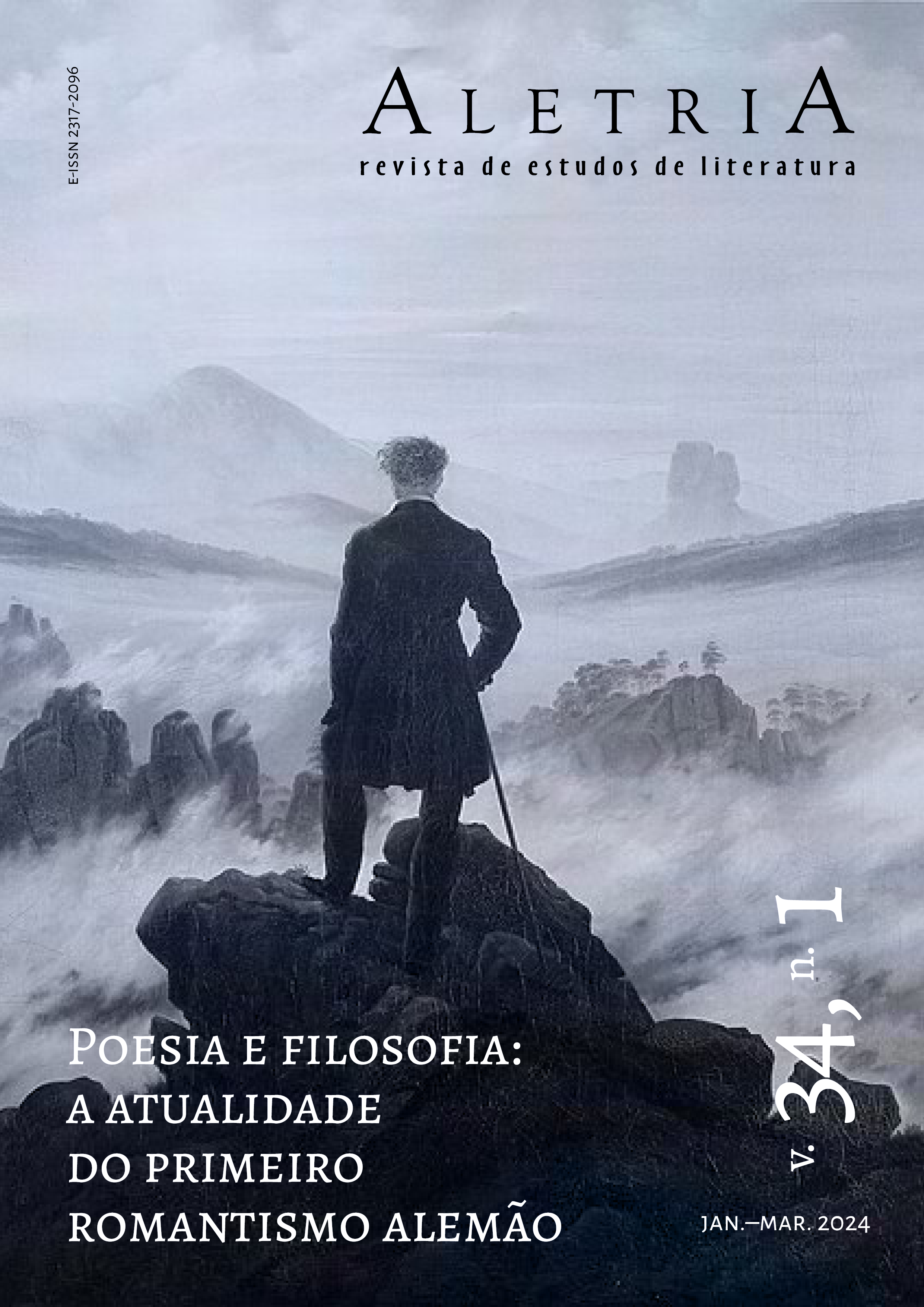The Function of Orality in João Antônio and Geovani Martins
Lexical and Syntactic Aspects
Keywords:
João Antônio, Geovani Martins, literatura brasileira, análise linguística, oralidade, estiloAbstract
Based on the confrontation between the use of orality conceived by João Antônio (1937–1966) and Geovani Martins (1991–), this essay aims to analyze lexical and syntactic aspects that represent the basis of the aesthetic construction carried out by the two authors. For that, the short story “Paulinho perna torta”, by João Antônio (1965), and the novel Via Ápia, by Geovani Martins (2022), will be related. Although the reproduction of expressiveness, rhythm, phrasing, orality tournaments certainly constitutes the basis of the two writers’ poetics, there are substantial differences, determined by a double factor: 1) the specificity of the literary genre in which the two works analyzed fit; 2) distinct linguistic (and ideological) aspects in the two texts. In this sense, as we will see, the use of the word “trickster” signals a dividing line between two different aesthetic choices.
Downloads
References
ANTÔNIO, João. Leão-de-chácara. São Paulo: Cosac & Naify, 2002.
BERRUTO, Gaetano. Prima lezione di sociolinguistica. 14. ed. Bari: Laterza, 2004.
CANDIDO, Antonio. Na noite enxovalhada. In: ANTÔNIO, João. Contos reunidos. São Paulo: Cosac & Naify, 2012. p. 577-582.
CANDIDO, Antonio. Dialética da malandragem. In: CANDIDO, Antonio. O discurso e a cidade. 3. ed. São Paulo: Duas Cidades, 2004. p. 17-46.
CUNHA, Celso. Em torno dos conceitos de gíria e calão. In: CUNHA, Celso. Sob a pele das palavras: dispersos. Organização, introdução e notas de Cilene da Cunha Pereira. Rio de Janeiro: Nova Fronteira: Academia brasileira de Letras, 2004. p. 237-262.
GARAVELLI, Bice Mortara. Il parlar figurato. Manualetto di figure retoriche. 12. ed. Bari: Laterza, 2010.
HOMERO. Odisseia. Tradução de Carlos Alberto Nunes. Rio de Janeiro: Nova Fronteira, 2015.
LACERDA, Rodrigo. Apresentação. In: ANTONIO, João. Contos reunidos. São Paulo: Cosac & Naify, 2012. p. 13-40.
MACÊDO, Tania. Malandros e merdunchos. In: ANTÔNIO, João. Leão-de-chácara. São Paulo: Cosac & Naify, 2002. p. 5-14.
MARTINS, Geovani. Via Ápia. São Paulo: Companhia das Letras, 2022.
MARTINS, Nilce Sant’Anna. Introdução à estilística: a expressividade na língua portuguesa. 2. ed. rev. e aum. São Paulo: T.A. Queiroz, 1997.
NASCENTES, Antenor. A gíria carioca. In: NASCENTES, Antenor. Estudos filológicos: volume dedicado à memória de Antenor Nascentes. Organização de Raimundo Barbarinho Neto; apresentação de Evanildo Bechara. Rio de Janeiro: Academia Brasileira de Letras, 2003. p. 593-598.
PRATA, Antonio. [Orelha do livro]. In: MARTINS, Geovani. O sol na cabeça. São Paulo: Companhia das Letras, 2018.
RIBEIRO, Leo Gilson. João Antônio, fascinado pelas palavras. É um perigo? Jornal da Tarde, São Paulo, 13 nov. 1982.
ZENI, Bruno. Sinuca de malandro: ficção e autobiografia em João Antônio. São Paulo: EDUSP, 2017.
Downloads
Published
How to Cite
Issue
Section
License
Copyright (c) 2024 Raphael Salomão Khéde (Autor)

This work is licensed under a Creative Commons Attribution 4.0 International License.
Authors who publish with this journal agree to the following terms:Authors retain copyright and grant the journal right of first publication with the work simultaneously licensed under a Creative Commons Attribution Non-Commercial No Derivatives License that allows others to share the work with an acknowledgement of the work's authorship and initial publication in this journal.Authors are able to enter into separate, additional contractual arrangements for the non-exclusive distribution of the journal's published version of the work (e.g., post it to an institutional repository or publish it in a book), with an acknowledgement of its initial publication in this journal.Authors are permitted and encouraged to post their work online (e.g., in institutional repositories or on their website) prior to and during the submission process, as it can lead to productive exchanges, as well as earlier and greater citation of published work (See The Effect of Open Access).





